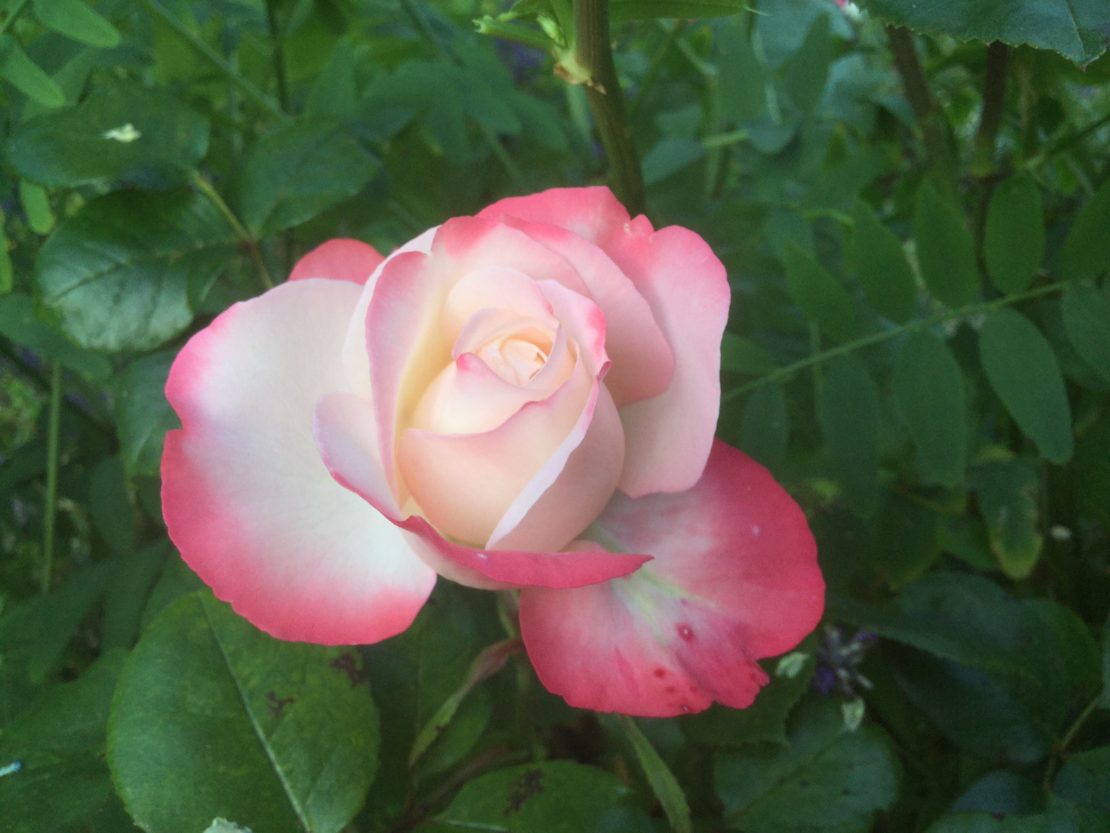
Teacher Feature: Anne McIntyre
Some of the most brilliant minds in modern herbalism have come together to bring you the wonderful courses, blog articles, and myriad resources at the Herbal Academy and in The Herbarium. Having so many perspectives and so much knowledge shared among our Associate Educators is one of our greatest strengths!
Today, we would love to introduce you to yet another of these expert herbalists that make what we do here at the Academy so unique.
Anne McIntyre is a prolific writer, an herbal conference organizer, and Ayurvedic practitioner. She recently shared with us a little about her own journey in herbalism, what prepared her the most for working with clients, and the inspiration for her herb gardens which have been featured on the BBC program, Gardener’s World TV. 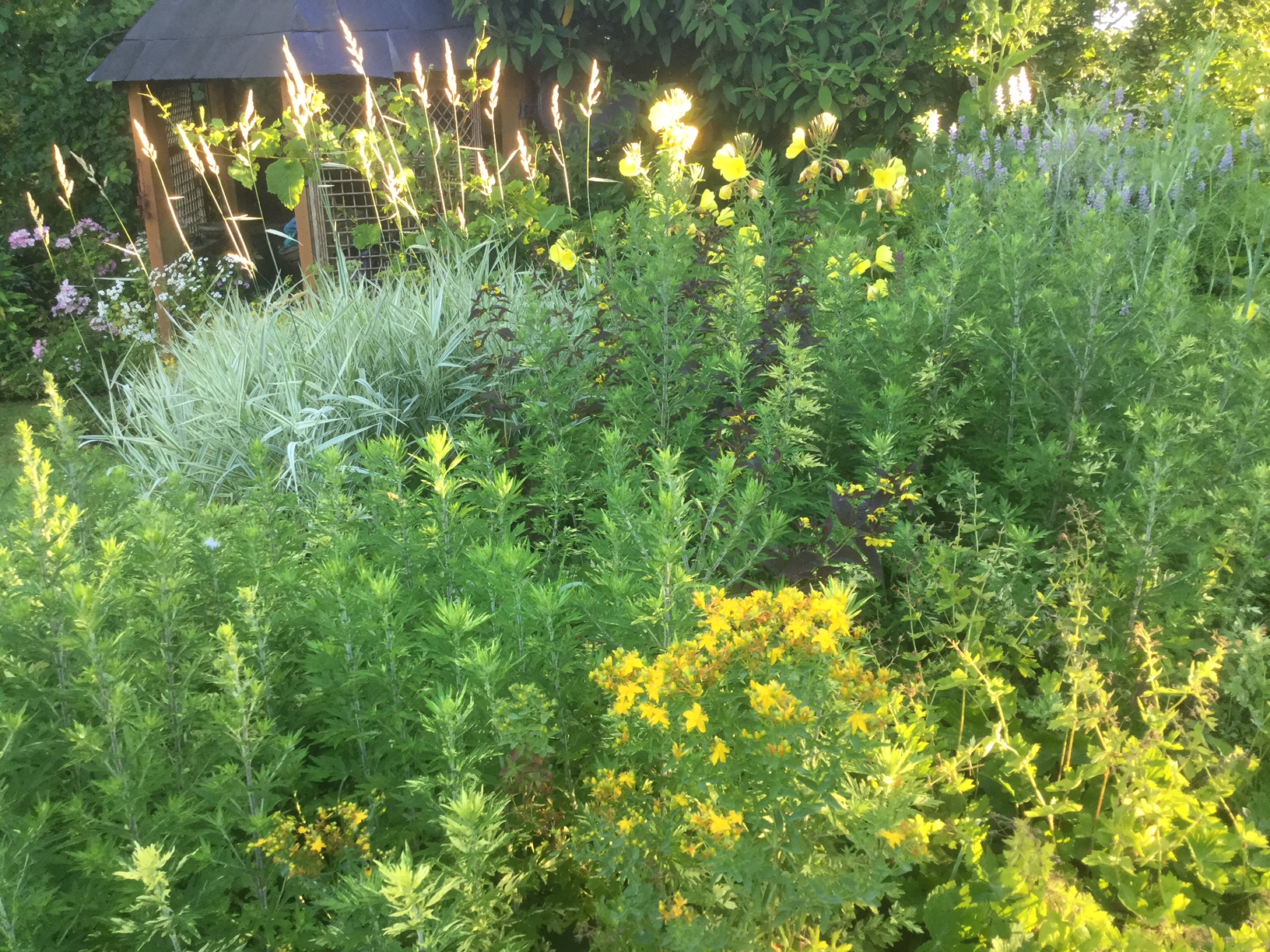
Interview with Academy Teacher Anne McIntyre
Herbal Academy: Your separate love of herbalism and Eastern philosophy met at an unexpected turn of the road when you had the opportunity to study with Ayurvedic practitioner, Dr. Vasant Lad. Will you tell us a little about the impact your education had on your herbal journey?
Anne McIntyre: When I first discovered Ayurvedic medicine, I was very excited because it was the bridge between my old love of Eastern philosophy and my passion for herbs and wellbeing. I immediately sought out a teacher. The Doctor that taught the first course that I studied made Ayurveda seem incredibly complicated, and I thought it was going to be a hugely difficult journey. When I first studied with Dr. Lad, the clarity with which he teaches and his inspiring yet witty style changed all that and gave me the confidence to take on Ayurveda in more depth. I studied with him every year that he came to the UK until the first university course started here.
The Herbal Academy: In your clinical practice you blend Western herbalism with Ayurveda. How does Ayurveda shape your perception of how herbs can help a client? What about this particular blend of Eastern and Western philosophies is most appealing to you?
Anne McIntyre: With its constitutional approach, Ayurveda makes helping people with herbs and diet so much easier! My practice would be impoverished without it.
Using the pulse and the tongue in the consultation and determining the doshas and dhatus involved you can be much more specific when suggesting herbs and making dietary and lifestyle suggestions. This means that my approach can be much more specific and I have found that is it definitely much more effective.
When I first studied Ayurveda I was determined that I would still use the herbs that I know and love in the Western tradition, and so I have made a study over the years of how Western herbs can be used according to Ayurvedic classifications. This is the basis of my book Dispensing with Tradition.
However, the exotic sounding names such as ashwagandha, shatavari, guduchi, shankapushpi and sariva lured me to study them in more depth and just like every other herb I found their healing benefits to be incredible! With a good source of organic, fair-trade Ayurvedic herbs available through Pukka herbs, I was able to incorporate them one by one into my practice and really get to know them.
I am really happy with my blend of Eastern and Western philosophy and Eastern and Western herbs, it just seems to work for me!
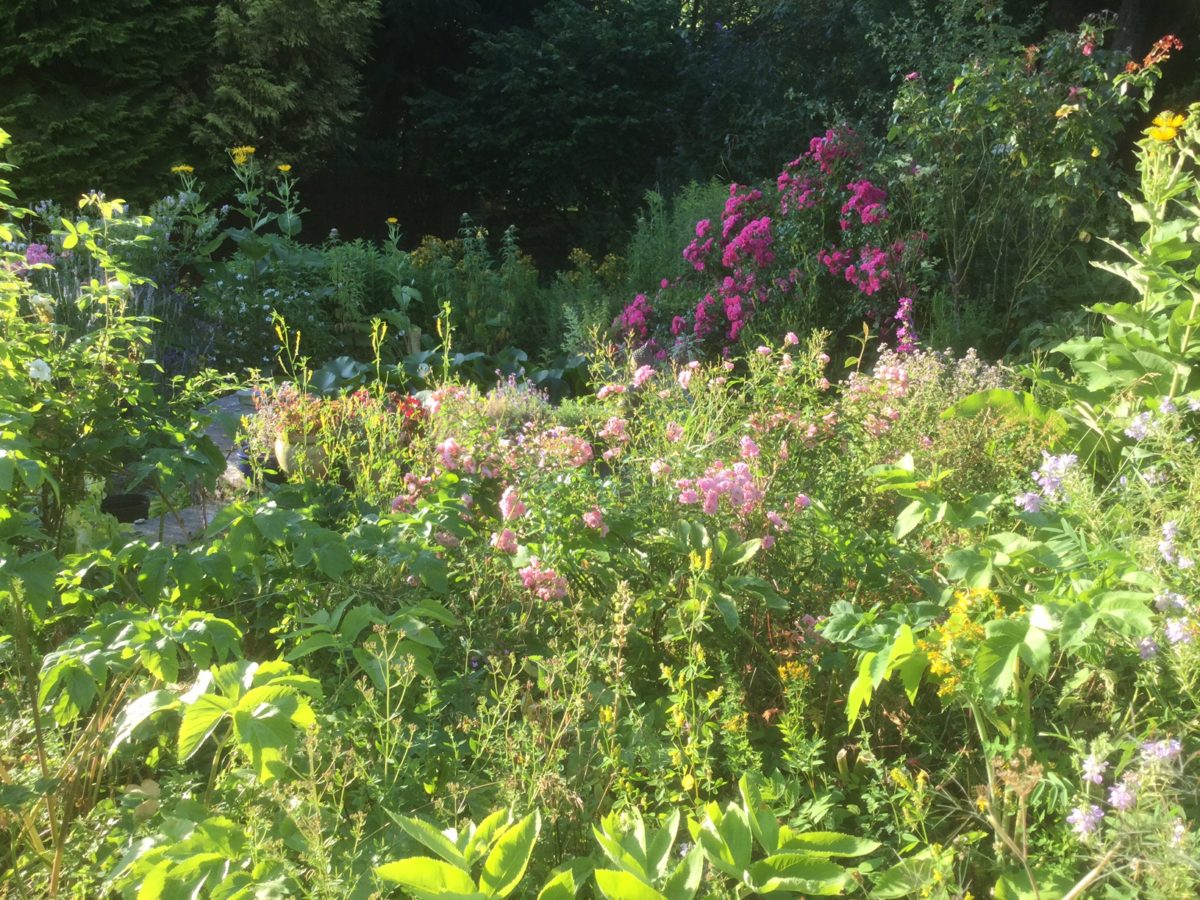
The Herbal Academy: Your herb garden at Artemis House represents a woman’s journey through life, “from birth to paradise,” and has been featured on the BBC’s Gardener’s World TV. What was the inspiration for your garden?
Anne McIntyre: I moved to a new home in 2002 with my three daughters. I renamed my home Artemis House and wanted to make a garden that befitted Artemis. Artemis is the Greek moon goddess and is the sister of Apollo, the sun god. She is the protector of women, especially during pregnancy and childbirth. On the strength of that, I decided to lay the garden out as a spiral representing a journey through a woman’s life expressed through herbs. As you walk around the spiral through the various phases of life you will find many herbs that could be helpful at that time.
The Herbal Academy: What was the process of creating this space- did it come to you all at once, or was it a dynamic, ongoing process? What are some of the herbs there that currently resonate with you the most?
Anne McIntyre: The godfather of my youngest daughter Mimi is a well-known garden designer called John Hill (he even designed Elton John’s garden!) I told him what I wanted to create and he drew up a design which we plotted with chalk in the garden. My dear friend, Deb Soule, and her partner Tom came to stay for a month the first Christmas I was at Artemis House. They gave me lots of ideas, and we started to excavate the garden….but it rained quite a lot that winter!
John’s team made archways, pathways and a round pond with Indian stone and also a fountain in the paradise garden. Then I set about doing the planting. I had great fun searching high and low for the right herbs for the right place over the next two to three years. Since then the garden has gradually grown and evolved, sometimes being more jungle-y than others. It is a massive amount of work, but the garden is still where I spend my happiest times.
As we speak, the herbs that bring the most pleasure are an abundance of roses, evening primrose, elecampane, and meadowsweet. If you ask me which plant most resonates with me overall I would have to say the English rose.
The Herbal Academy: What helped prepare you the most for beginning to work with clients? What piece of advice do you have for new herbalists who want to see clients someday?
Anne McIntyre: I remember very clearly the day I saw my first client. As I sat in the practitioner’s chair, I had a strong feeling that the client and I should have swapped places… I felt in need of help! It was a stressful experience! Even though I had done a lot of clinical practice as a student, nothing quite prepared me for the first time I was on my own. What has taught me more than anything else is actually seeing clients and it is that practice which really prepares you for seeing more clients. You have to just get out there and do it, and gradually, your confidence grows.
Maybe what I would recommend to students and new herbalists is to practice as much as possible on family and friends and to really get to know your herbs through thorough study as well tasting and spending time with them. The world of herbs is really quite amazing and has so many gifts to offer us!
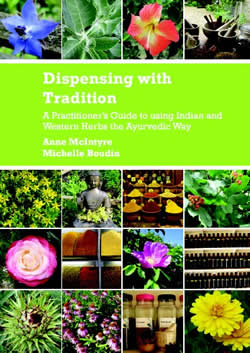 Herbal Academy: You’ve written 20 books so far, including your most recent, Dispensing with Tradition: A Practitioner’s Guide to using Western and Indian Herbs the Ayurvedic Way. Which projects have you enjoyed working on the most?
Herbal Academy: You’ve written 20 books so far, including your most recent, Dispensing with Tradition: A Practitioner’s Guide to using Western and Indian Herbs the Ayurvedic Way. Which projects have you enjoyed working on the most?
Anne McIntyre: I really enjoyed writing about flowers in Flower Power, or, as the book is called here, The Complete Floral Healer. I found it fascinating that despite being used in a variety of different ways, as herbal remedies, aromatherapy oils, homeopathic medicines and flower essences, their uses are very similar and have been for thousands of years. I also loved writing The Complete Woman’s Herbal and latterly Dispensing with Tradition…they have all been labours of love!
Herbal Academy: HerbFest sounds like an incredible retreat with participants from around the world. What’s your vision behind HerbFest? What’s the main focus of the retreat, and what’s it like to organize an event like this?
Anne McIntyre: Actually, HerbFest was inspired by the wonderful conferences that Rosemary Gladstar has organised on the East coast which I have been honoured to be invited to for many years….I will very happily be coming to the Woman’s Herbal Conference next summer.
I felt that England would really benefit from such gatherings of like-minded folk as I feel it is important to connect with people who realise how amazing plants actually are! There are not many of us around!
And so a group of us got together and launched the first HerbFest in 2006. They have been going ever since and now I have decided to try doing them further afield to benefit from some of the glorious wildflowers and sunshine in Europe. This April we had a really successful conference in the Algarve in Portugal and we have decided to go back there again next April as it was such a lovely place. We have some wonderful speakers coming and it is going to be the best line up yet I think!
The main focus is “bringing people and plants together” and we have all difference levels of lectures, workshops, and herb walks, from clinical herbalism, Chinese, Ayurvedic and Tibetan medicine, practical workshops such as fermentation and cream making, discussions about politics and education… to the more subtle aspects of exploring our deeper connection with plants on a more spiritual level.
It is, of course, a lot of work even though the numbers are not anywhere near those of the conferences in the US…but it is a lot of fun and really worth it.
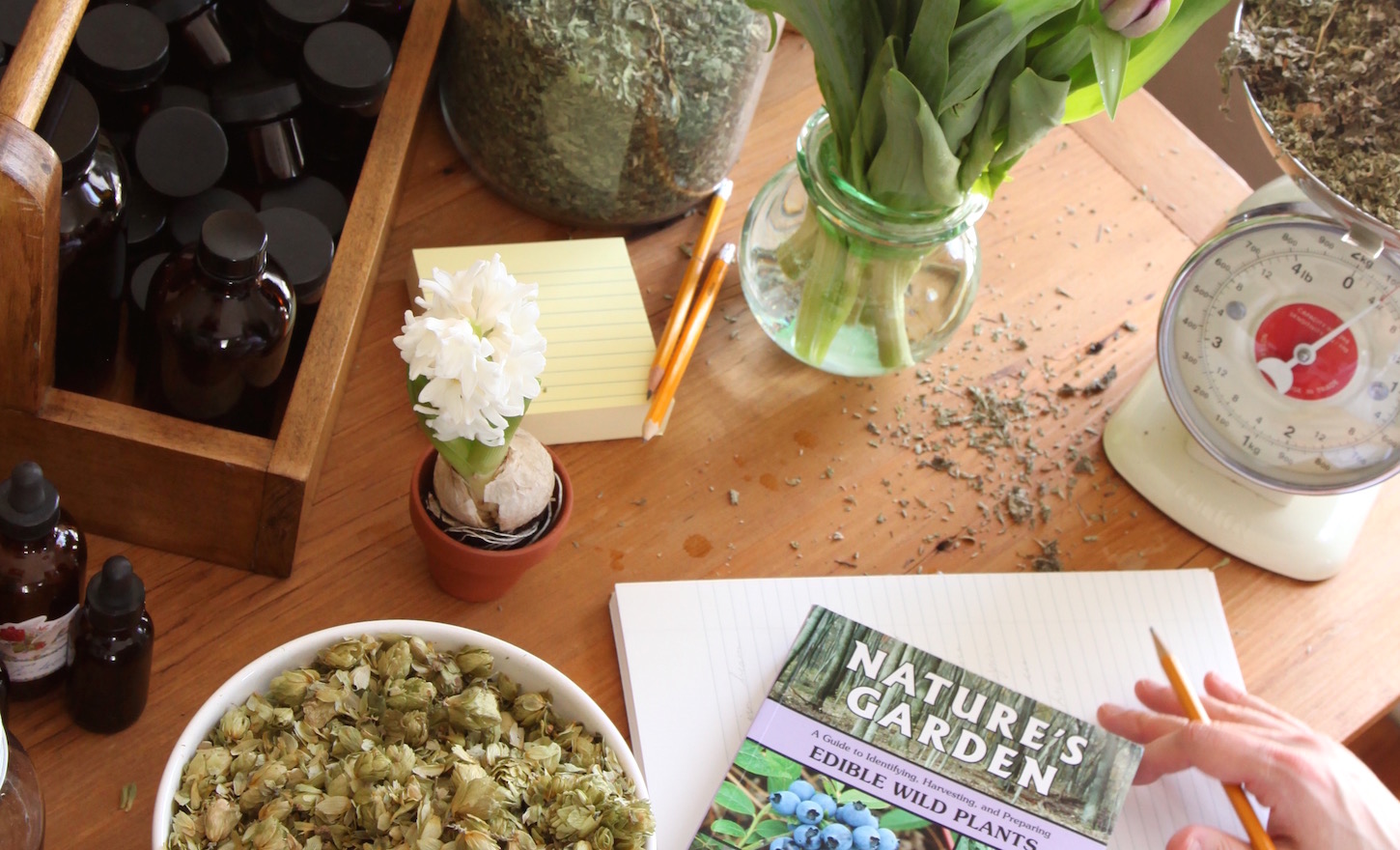
Herbal Academy: Share with us about your role contributing to the Advanced Herbal Course. What topics did you teach and what makes them important for herbalists to master at the advanced level?
Anne McIntyre: I contributed an Introduction to Ayurveda to the advanced herbal course. Ayurveda is a traditional system of healing and spiritual wisdom from India. Since a knowledge of an “energetic approach” to herbal medicine has helped me so much in my practice, I am always happy to teach herbalists and herbal students about the basic concepts of Ayurveda and how to integrate them into Western herbal practice.
I discussed the profound philosophical ideas that underpin Ayurveda and that help us to reach an understanding of our relationship to the world around us, the cosmos, and the divine. I described the five elements present in the macrocosm and microcosm and the world around us mirrored in us as individuals. I went on to describe how the five elements relate to the energies that contribute to our constitutions—physical, emotional and spiritual—known as the doshas. By understanding the doshas we can learn more about ourselves, recognise when we are going out of balance, and learn how to bring ourselves back into balance should we become unwell.
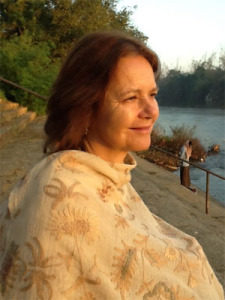 After establishing how we can assess our constitution I went on to describe the 7 different tissues in the body known as dhatus. I emphasise the importance of agni—our digestive fire—and how imbalances of eating and digestion contribute to the formation of toxins, known as ama. According to Ayurveda, ama is the cause of all disease which is fascinating in the light of all the current research into the central importance of the gut to our health and wellbeing.
After establishing how we can assess our constitution I went on to describe the 7 different tissues in the body known as dhatus. I emphasise the importance of agni—our digestive fire—and how imbalances of eating and digestion contribute to the formation of toxins, known as ama. According to Ayurveda, ama is the cause of all disease which is fascinating in the light of all the current research into the central importance of the gut to our health and wellbeing.
I also talk about preventative health through the seasons, the importance of the six tastes of foods and herbs in keeping the doshas in balance, and describe herbs, diet and lifestyle recommendations to bring the doshas back into balance.
We are so happy to have Anne, and many other wonderful herbalists like her, with us at the Academy. To learn more about the amazing courses that have been made possible by this unique spirit of collaboration, we invite you to explore our Courses and Classes page. All of our courses are affordable, self-paced online programs where you will have a thriving student community and instructors to encourage and assist you along the way!







